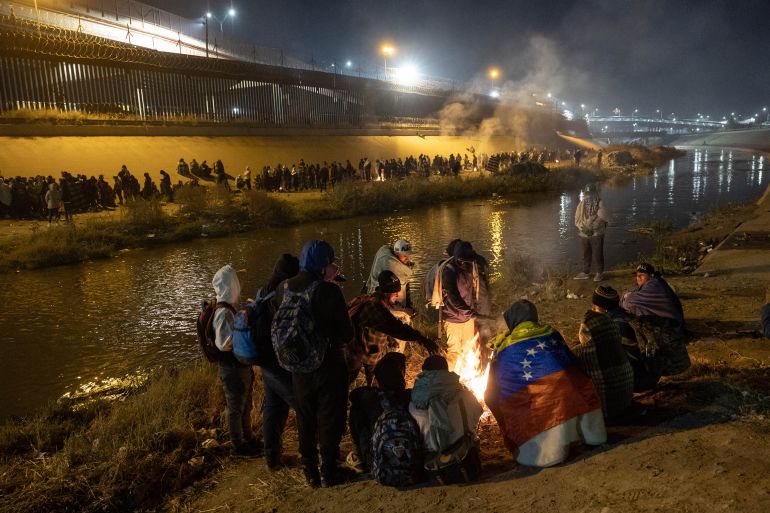US Supreme Court upholds controversial Title 42 border policy
Invoked under the Trump administration, Title 42 uses public health as a justification for expelling asylum seekers.

The United States Supreme Court has temporarily kept in place Title 42, a controversial immigration policy that has been criticised for denying refugees the ability to seek asylum in the US.
In a five-four vote on Tuesday, the justices granted a request filed by several Republican state attorneys generals for the court to consider whether the states can challenge the end of Title 42. The policy was set to expire in mid-December, leading to fears of heightened immigration to the US.
Keep reading
list of 3 itemsUS judge gives Biden administration five weeks to end Title 42
‘I feel powerless’: Asylum seekers lament Title 42’s extension
The court’s decision to take up the case means Title 42 will remain in place for the indefinite future, dashing the hopes of rights groups who have characterised it as arbitrary and illegal.
“We are deeply disappointed for all the desperate asylum seekers who will continue to suffer because of Title 42, but we will continue fighting to eventually end the policy,” said Lee Gelernt, a lawyer with the American Civil Liberties Union (ACLU), which has sued for an end to the policy.
Title 42 refers to a rarely used section of the US Code, enacted in 1944, which allows the government to prohibit the entry of foreigners if they present a “serious danger” of spreading communicable diseases.
Then-President Donald Trump invoked the policy in March 2020, as the US grappled with the early months of the COVID-19 pandemic. But US officials have used Title 42 to expel about 2.5 million people who entered the country seeking asylum, turning away arrivals at the US-Mexico border in the name of combatting COVID-19.
Immigrant rights groups accused the Trump administration of using public health as a pretext for cracking down on migration, a longstanding goal of the former president.
The policy has also been criticised as a dubious measure for combatting the spread of the virus. US health authorities said last April the policy was no longer necessary.
But US President Joe Biden has met fierce pushback to his efforts to roll back the policy, with conservative judges and officials warning that the end of Title 42 would lead to a spike in border crossings.
As a result, Title 42 remained in place under the Biden administration, until a federal court ruled in November that the policy must end. The judge gave the Biden administration five weeks to prepare for the policy transition, scheduling Title 42’s expiration date for December 21.
Days before the expiration was set to occur, the Supreme Court issued a temporary order blocking any change to the policy as it considered whether to take up the issue.
Following Tuesday’s vote, the Supreme Court is now scheduled to hear arguments for the case in February, setting up another legal battle between groups like the ACLU and conservative politicians.
The ACLU has argued the policy is no longer necessary due to improvements in COVID-19 treatments and that it violates international asylum law. Conservative groups, meanwhile, believe Title 42’s end would lead to an increase in immigration that would overwhelm government agencies, leading to “unprecedented calamity”.